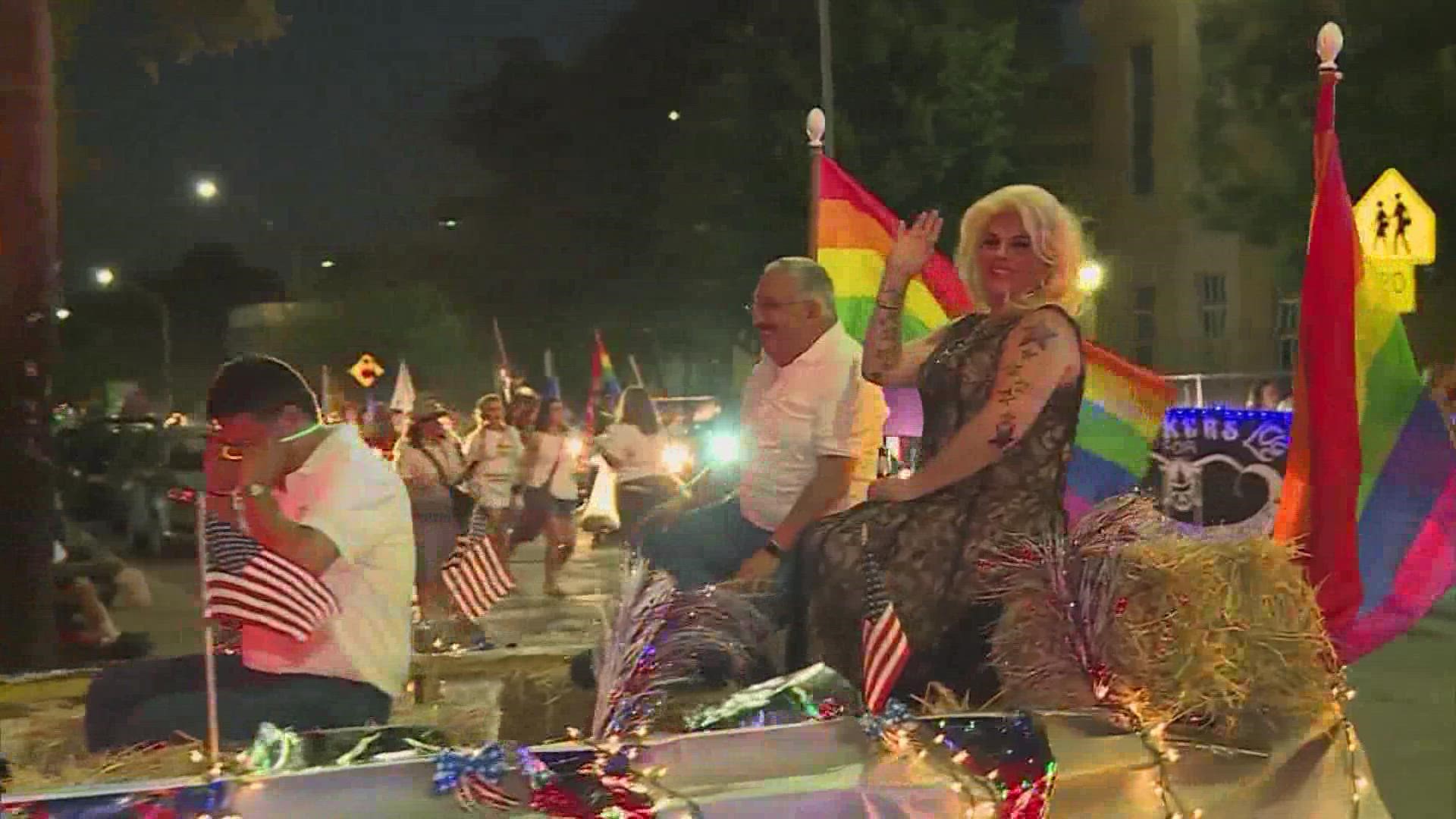The history behind Pride that is too important to forget
San Antonio's first Pride march was in 1976, but the riots for LGBTQ+ rights commemorated every year happened in 1969 in New York.
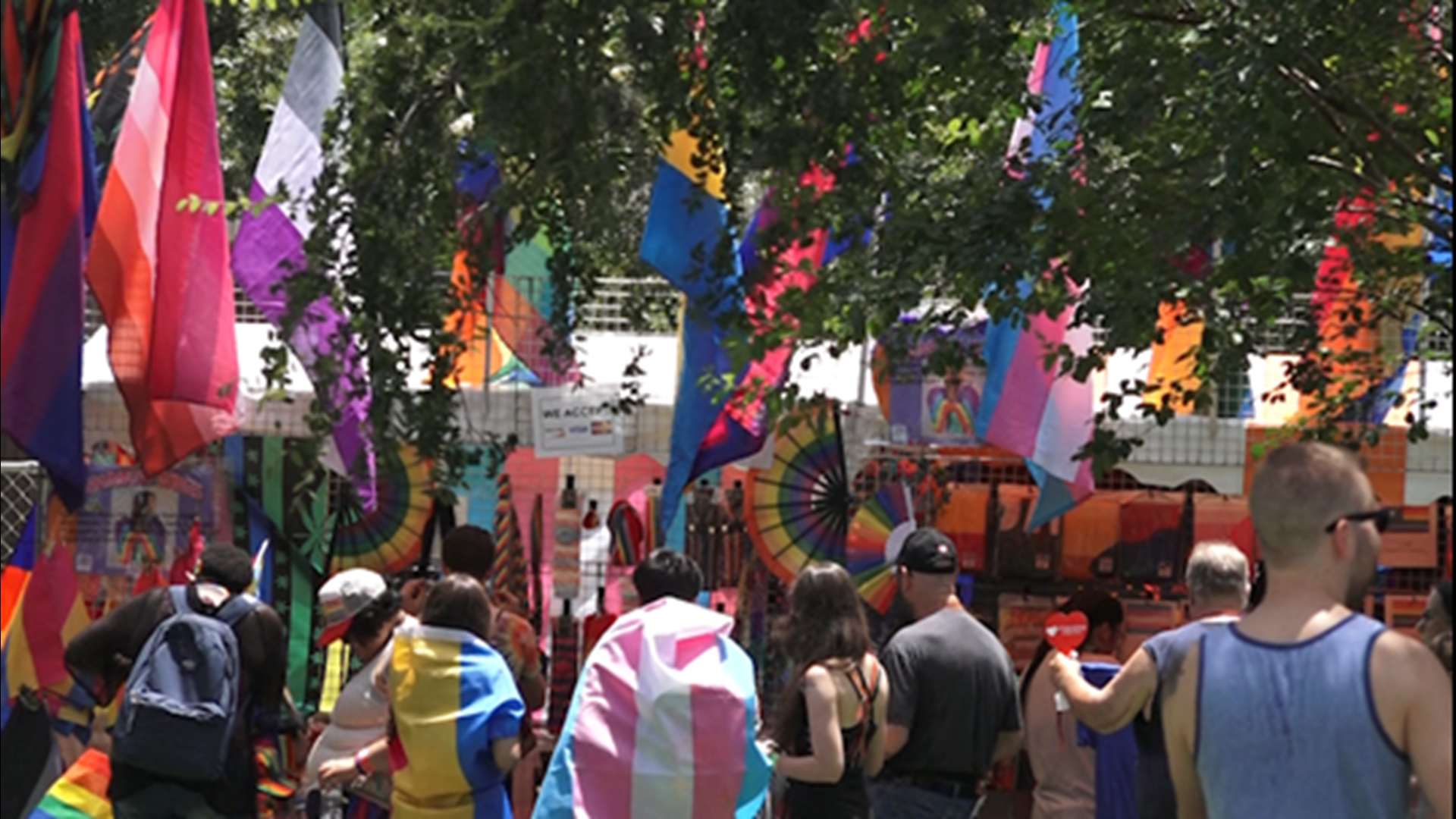
Pride is rooted in activism The 1969 Stonewall riots were a turning point for LGBTQ+ rights
"Pride started as a riot." That message is often seen on posters and signs at Pride parades and marches across the country. While the first celebrations amplifying LGBTQ+ visibility were not known as "Pride", the 1970 Christopher Street Gay Liberation Day march in New York could be considered the first "Pride" march. This, and all Pride celebrations now commemorate the Stonewall Riots of 1969.
On the evening of June 28, 1969, police raided the Stonewall Inn, a small gay bar in Greenwich Village. At the time, police raids at queer friendly establishments were common. But on the evening of June 28, 1969, patrons fought back. It erupted into riots that lasted until July 3.
University of Texas at San Antonio (UTSA) assistant archivist, Melissa Gohlke, called it "a seminal moment in LGBTQ+ history where members of the community just drew the line in the sand."
Many consider the Stonewall riots to be a turning point for LGBTQ+ rights. "members of the community were just done, they were tired of being preyed upon by policing agencies, by the mafia that often owned the clubs" Gohlke said.
Sylvia Rivera and Marsha P. Johnson are both remembered as LGBTQ+ rights activist and prominent figures in the Stonewall Riots.
Though, the news may have been slow to reach smaller communities, Pride Month has been celebrated in June for decades now, commemorating the riots, and the people who stood up against oppressions.
San Antonio didn't react to Stonewall immediately, but in 1973, a popular gay nightclub became San Antonio's Stonewall.
Pride in San Antonio The first Pride march in San Antonio happened in 1976
The San Antonio Country was a successful gay bar on St. Mary's St. founded by Arthur "Hap" Veltman. Gohlke said military police often came in to check for military personnel because they did not want them patronizing queer establishments.
In December 1973, military and local police raided the San Antonio Country.

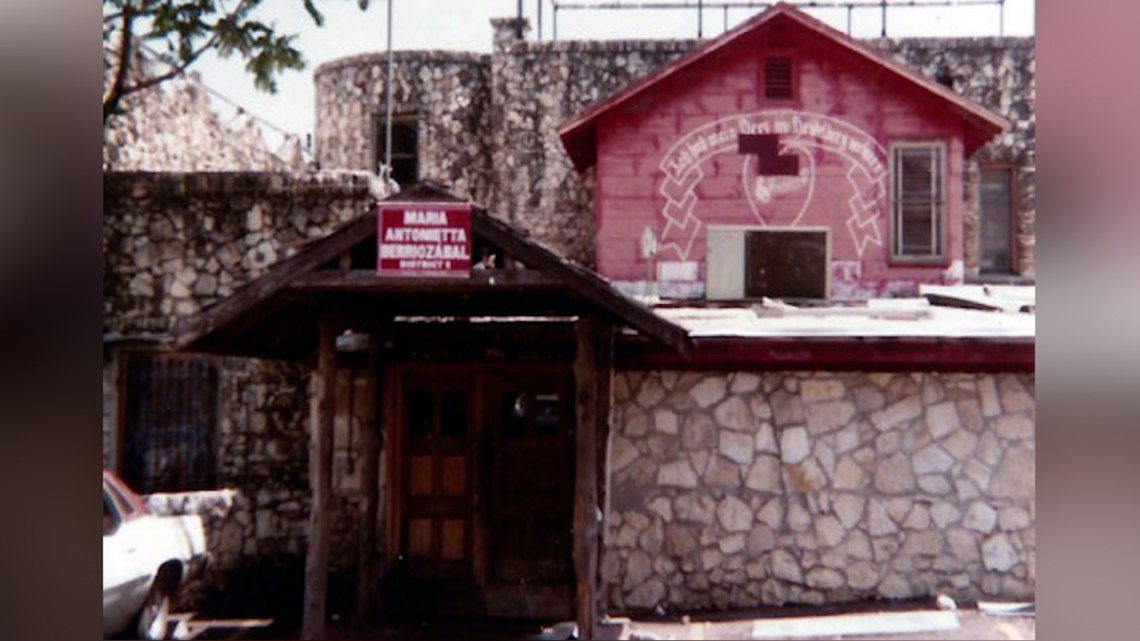
"This very safe space then becomes not safe and like Stonewall, it becomes a flashpoint in San Antonio to move forward and say we’re not gonna take this anymore," Gohlke said.
Law enforcement at the time wanted to put Veltman's club on the off limits list for military personnel. After the 1973 raid, Veltman went to court and won to keep the San Antonio Country off the off limits list.
"Like Stonewall, a very seminal moment because he's fighting this huge bureaucracy that's trying to really oppress gays and he wins."
The first Pride march happened in 1976 with 35 participants, two police officers as escorts.
"It was a small group, that’s a brave group of people," Gohlke said. "A year later, it grew to 50 participants, gathering on the steps of the courthouse saying we’re here, you cannot continue to not hear our voices."
In the 80's and 90's, Pride celebrations grew larger. In

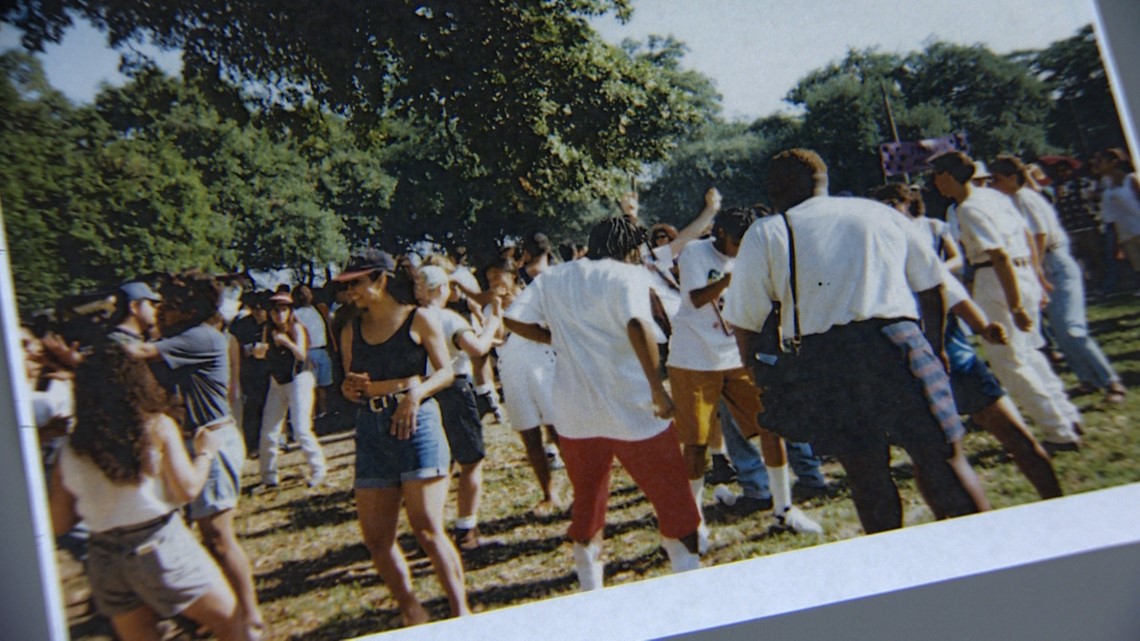
UTSA's special collections has photos from Pride celebrations at San Pedro Park.
Picnics and parades were full of people who for so long hadn’t felt safe being themselves in public.
"That must've been a great thing, you can bring your kids out, and feel safe, just hanging out, swimming, playing volleyball, and dancing...same sex dancing was pretty much forbidden, so this was a new platform. You could dance with your partner and just enjoy being out in public spaces and that has continued over the years."

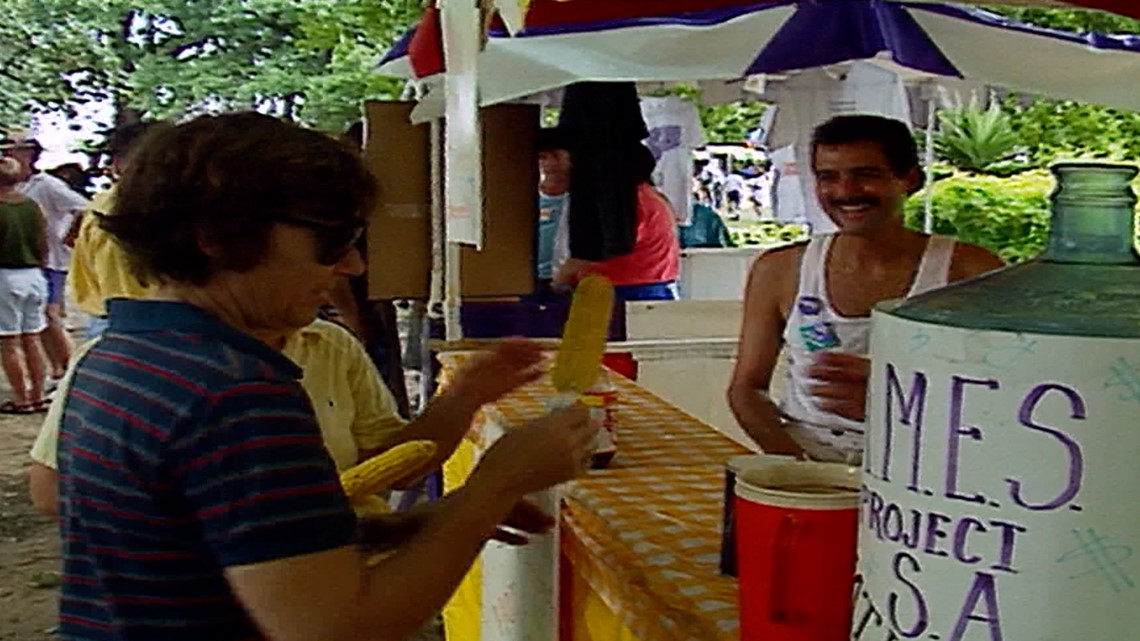
Executive Director of Pride Center San Antonio, Robert Salcido, remembers his first Pride parade in the city as a very short one.
"It was just a span of a few blocks," he said. "To see where things have changed now where our parade is miles long and we have so many people who show up, families that come out, it's just beautiful to see the changes."
During his first Pride parade in San Antonio, he remembers seeing a news crew gathering video. " I remember being fearful, like I hope I’m not on camera, and that was 21 years ago."
Pride is 365 days a year Amplifying and celebrating visibility year round.
While Pride month certainly amplifies visibility for the LGBTQ+ community, Pride is 365 days a year.
"We live authentically as who we are in our communities each and every day," Salcido said.
In the last few years where Pride has become more commercialized for, Salcido said it's important for major corporations to realize the LGBTQ+ community should be amplified, celebrated, and respected year round.
For allies and people who do not identify as LGBTQ+, Pride month is a time to listen, reflect, and learn about the community around them.
"It gives allies an opportunity to further educate themselves about who we are," Salcido said. "It gives us an opportunity to connect with allies build new ones."
Pride month has also become a time where organizations and corporations take the time to educate others on issues related to the LGBTQ+ community. While Salcido said he appreciated those conversations every June, he would like to see them continue throughout the year.
Pride started as a movement and it still is today "In 2022, we're still standing up for ourselves"
Pride started as a movement against oppression. 53 years later, Salcido considers Pride to still be a revolutionary act in the fight for LGBTQ+ equal rights.
"It was a revolutionary act of people standing up for themselves and in 2022, we’re still standing up for ourselves," he said.
In the 53 years since Stonewall, Salcido said there have been strides, but not enough.
"We’ve definitely seen progress with marriage equality and protections for youth, for trans folks, but then we’ve also seen those same protections be threatened or taken away and not knowing where things are."
He pointed to Republican lawmakers who have banned transgender youth from participating in some sports, directing the state to investigate parents of transgender youth, and calls to pass legislation similar to Florida's "Don't Say Gay" bill.
"We are human just like everybody else and we deserve dignity and respect, that’s what pride month means to me and carrying it on from what it started many many years ago to what it is today."
At UTSA, Gohlke is committed to preserving history related to San Antonio's LGBTQ+ community.
"As any marginalized population would do, we want to make sure that those stories move forward so that we can empower the generations coming up because they will continue to face obstacles," she said.


